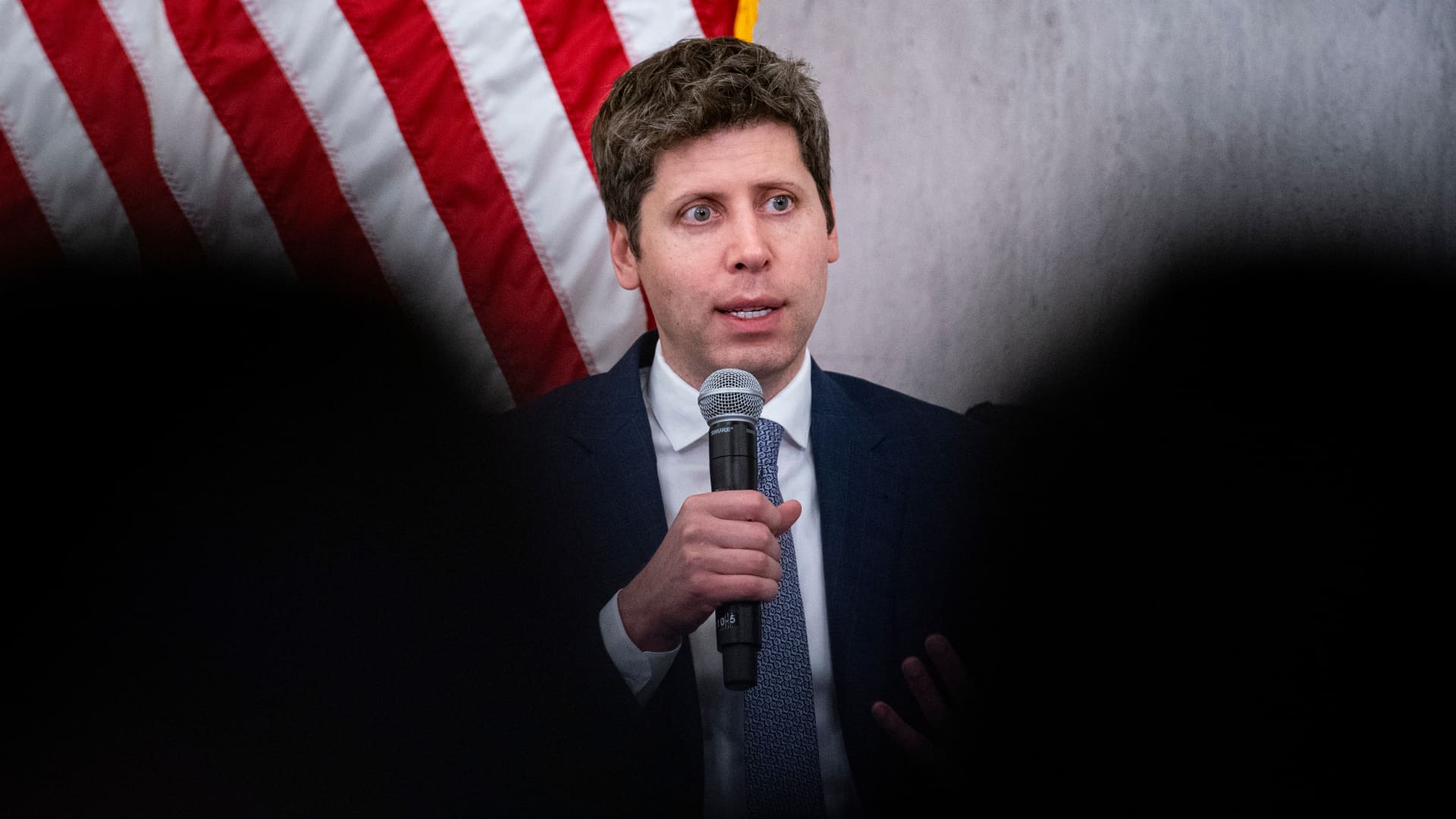Sam Altman, CEO of OpenAI, speaks during the Federal Reserve Integrated Review of the Capital Framework for Large Banks Conference in Washington, D.C, U.S., on July 22, 2025.
Al Drago | Bloomberg | Getty Images
There's a bubble forming in the artificial intelligence industry, according to OpenAI CEO Sam Altman.
"Are we in a phase where investors as a whole are overexcited about AI? My opinion is yes. Is AI the most important thing to happen in a very long time? My opinion is also yes," Altman said.
"I'm sure someone's gonna write some sensational headline about that. I wish you wouldn't, but that's fine," he added. (Apologies to Altman.)
Altman's AI company is currently in talks to sell about $6 billion in stock that would value OpenAI at around $500 billion, CNBC confirmed Friday.
In another conversation, Altman warned that the U.S. may be underestimating the progress that China is making in AI.
Given the above premises, should investors be more cautious about OpenAI? Altman was not posed this question, but one wonders whether his opinion would also be "yes."
Outside pure-play AI companies, the money is, likewise, still flowing. Intel is receiving a $2 billion injection of cash from Japan's SoftBank.
It's a much-needed boost to the beleaguered U.S. chipmaker. Intel has fallen behind foreign rivals such as TSMC and Samsung in manufacturing semiconductors that serve as the brains for AI models.
But going by Altman's views, the investment in Intel might not be a good bet by SoftBank CEO Masayoshi Son.
Not everyone agrees with Altman, of course.
Wedbush's Dan Ives told CNBC on Monday that there might be "some froth" in parts of the market, but "the actual impact over the medium and long term is actually being underestimated."
And Ray Wang, research director for semiconductors, supply chain and emerging technology at Futurum Group, pointed out that the AI industry is not heterogeneous. There are market leaders, and then there are companies that are still developing.
In the real world, bubbles delight because they reflect their surroundings in a play of light. But the bubble Altman described could be one doesn't show the face of its observer.
— CNBC's MacKenzie Sigalos and Dylan Butts contributed to this report
What you need to know today
Trump-Zelenskyy meeting paves the way for trilateral talks with Putin. At the White House meeting, the U.S. president also discussed security guarantees for Ukraine — which would reportedly involve a purchase around $90 billion of American weapons by Kyiv.
Intel is getting a $2 billion investment from SoftBank. Both companies announced the development Monday, in which SoftBank will pay $23 per share for Intel's common stock. Shares of Intel jumped more than 5% in extended trading.
The artificial intelligence market is in a bubble, says Sam Altman. Separately, the OpenAI CEO said he's "worried about China," and that the U.S. may be underestimating the latter's progress in artificial intelligence.
U.S. stocks close mostly flat on Monday. The three major indexes made moves that were less than 0.1 percentage points in either direction as investors await key U.S. retail earnings. Asia-Pacific markets were mixed Tuesday. SoftBank shares fell as much as 5.7%.
[PRO] Opportunities in one area of the European market. Investors have been pivoting away from the U.S. as multiple European indexes outperform those on Wall Street. But one pocket of Europe still remains overlooked, according to analysts.
And finally...
Tatra National Park, Tatra Mountains.
Stanislaw Pytel | Digitalvision | Getty Images
American money pours into Europe’s soccer giants as club valuations soar
European soccer is a bigger business than ever, with clubs in the continent's five top leagues raking in 20.4 billion euros ($23.7 billion) in revenue in the 2023-2024 season. American investors have been eyeing a piece of that pie.
U.S. investors now own, fully or in part, the majority of soccer teams in England's Premier League. That now includes four of the traditional Big Six clubs, with Chelsea, Liverpool, Manchester United and Arsenal all attracting U.S. investment.
— Matt Ward-Perkins
